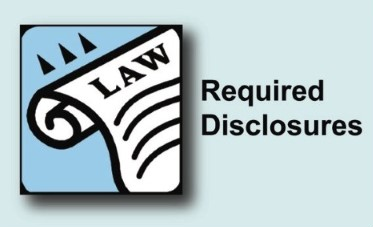 Yes, it’s true, California now requires associations with 25 or more separate interests that have a “public pool” must follow new (2015) daily and monthly testing requirements for the pool water. (Associations with less than 25 separate interests still have to test at least two times per week and at intervals no greater than four days apart.) There are no exceptions for homeowners associations; rather, the statute includes homeowners associations in the definition of “public pools”. Although associations of all sizes should ensure compliance with the entirety of the Pool Maintenance and Operation requirements of the California Code of Regulations, the big ticket obligations are as follows:
Yes, it’s true, California now requires associations with 25 or more separate interests that have a “public pool” must follow new (2015) daily and monthly testing requirements for the pool water. (Associations with less than 25 separate interests still have to test at least two times per week and at intervals no greater than four days apart.) There are no exceptions for homeowners associations; rather, the statute includes homeowners associations in the definition of “public pools”. Although associations of all sizes should ensure compliance with the entirety of the Pool Maintenance and Operation requirements of the California Code of Regulations, the big ticket obligations are as follows:
1. New parameters for water characteristics 2. Strict monitoring of public pool facilities (daily if 25 or more separate interests) and requirements for written records 3. Enforcement of specific safety and first aid equipment 4. Requirements that newly constructed public pool enclosures have at least one keyless exit and self-closing latches 5. Imposition of health restrictions for employees or pool users.
As mentioned above, associations with 25 or more separate interests are now obligated, on a daily basis, to test pool and spa/jacuzzi water and to keep a log of the testing daily. Testing can be done automatically if local enforcing authorities allow for same; otherwise, the manual test results must be maintained onsite as part of the association’s written records for at least a two-year period.
 HOA Law Blog
HOA Law Blog




 It’s that time of year again — time to get the community association’s budget together and ensure you’re making all the proper disclosures under the Annual Budget Report and Annual Policy Statement, as required by the California Civil Code. In order to assist you with this process and other required notices and disclosures, we have again updated our disclosure checklist reference.
It’s that time of year again — time to get the community association’s budget together and ensure you’re making all the proper disclosures under the Annual Budget Report and Annual Policy Statement, as required by the California Civil Code. In order to assist you with this process and other required notices and disclosures, we have again updated our disclosure checklist reference. New legislation amending two of the transfer disclosure sections of the Davis-Stirling Act, Sections 4528 and 4530, will be effective January 1, 2015.
New legislation amending two of the transfer disclosure sections of the Davis-Stirling Act, Sections 4528 and 4530, will be effective January 1, 2015.  The body of statutory law (as opposed to case law) governing California Community Associations, known as the Davis-Stirling Common Interest Development Act, went into effect on January 1, 1986. As the industry developed and matured over the last 27 years, approximately 50 changes and amendments were made to the Act. While those adjustments were well-intended, the net effect yielded a disorganized and confusing body of law. To address this problem, a multi-year effort was launched to rewrite the Davis-Stirling Act. This “new” Davis-Stirling Act, signed into law in 2012, becomes the guiding law for California residential community associations on January 1, 2014. So you are probably asking what are the major changes and how does the re-write affect reserve funding issues? The answer is no major changes have been made regarding reserve funding. For the most part, the new updated law amounts to new set of Civil Code references for reserve funding matters. Fortunately, the majority of the changes are just re-organization and renumbering. But there have been changes made to the Act as it applies to reserves.
The body of statutory law (as opposed to case law) governing California Community Associations, known as the Davis-Stirling Common Interest Development Act, went into effect on January 1, 1986. As the industry developed and matured over the last 27 years, approximately 50 changes and amendments were made to the Act. While those adjustments were well-intended, the net effect yielded a disorganized and confusing body of law. To address this problem, a multi-year effort was launched to rewrite the Davis-Stirling Act. This “new” Davis-Stirling Act, signed into law in 2012, becomes the guiding law for California residential community associations on January 1, 2014. So you are probably asking what are the major changes and how does the re-write affect reserve funding issues? The answer is no major changes have been made regarding reserve funding. For the most part, the new updated law amounts to new set of Civil Code references for reserve funding matters. Fortunately, the majority of the changes are just re-organization and renumbering. But there have been changes made to the Act as it applies to reserves.

 Have you heard the latest regarding new required pool signage at California community association pools? Our attorneys have been receiving a lot of inquiries about whether a new “poop sign” is required to be posted at community associations that have pools. We have to report that a diarrhea sign is now required. In 2012, the California Building Standards Code (the “Code”) was amended, effective September 1, 2012. The Code states that it applies to “public pools.” At first glance, one would think that just as the Americans with Disabilities Act does not generally apply to community associations,
Have you heard the latest regarding new required pool signage at California community association pools? Our attorneys have been receiving a lot of inquiries about whether a new “poop sign” is required to be posted at community associations that have pools. We have to report that a diarrhea sign is now required. In 2012, the California Building Standards Code (the “Code”) was amended, effective September 1, 2012. The Code states that it applies to “public pools.” At first glance, one would think that just as the Americans with Disabilities Act does not generally apply to community associations,